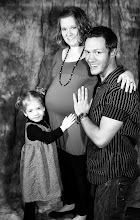It is not always a nice topic to talk about, but it can help you tremendously if you have the knowledge to deal with this kind of situation. In the unfortunate scenario that you are in an accident, or witness one, it can be helpful to know what steps you should take. Every situation will be different, but prior knowledge, and tools, will be able to help you navigate an already stressful and frightening situation much better. Preparation is key.
General road safety
It is first important to make sure that you are as safe as possible on the road, to ensure you reduce the risk of having an accident in the first place or at least minimize the severity of injury that you may suffer. You should regularly conduct car safety checks including checking the airbags are working, your tires are pumped up accordingly, your front and brake lights are working, your brakes work, etc. Make sure you are safe on the road, take your time and extra caution.
Straight after an accident
If you do have an accident, it is important that you first stop your vehicle as soon as it is safe to do. Make sure you check your surroundings are not obstructing other vehicles or stopping in an unsafe place that could cause further injury. Turn your engine off immediately and switch your hazard lights on. Before moving, check yourself for any injuries and move slowly, and with caution. Depending on the severity of the accident, there are often times when injuries may not be fully realized immediately due to shock or the location. Check with your passengers that they are okay. Depending on how everyone feels, slowly start to make your way out of your vehicle and move to a safe location. Check on any other vehicles and passengers that may be involved, and make sure everyone is moved to safety and out of the road. Place the relevant calls, for example, to the ambulance and police, especially if there is an injury or the road is blocked.
The police should be called if the circumstances call for it, for example, if the accident has caused a road blockage if the other driver does not have insurance, is not the registered owner, will not provide you with details, you suspect they done it deliberately, appear to be under the influence of drugs or alcohol, or if they have left the scene without providing you with any details. The police need to be contacted ideally straight away, but the rules state it can be within 24 hours before any consequences like a fine or points are involved.
If and when everyone involved is okay, it is important to exchange motor details. Share your full name and address, insurance information, and any other relevant information with the drivers involved in the accident. If there are witnesses to the accident, see if they consent to their details being taken in case it is needed later on for the police. If you are okay to do so, you should also make a note of the following information:
The date and time of the accident
The registration plate, the make, color and model of the vehicles involved
The weather and driving conditions of the road
Details of what damage has been caused to all the vehicles
What injuries people are suffering with
You must be as specific as possible with your details. These can be noted on your phone if you don’t have a pen and paper handy. You can also use your mobile phone to take pictures and videos of the scene. If you have been in an accident and are the only driver and person involved, and have caused damage to a property or vehicle, you must leave your details so they can contact you.
Making a claim
Once the safety and wellbeing of everyone has been dealt with, you can move on to the next step which is to make a claim. You may wish to contact your insurance company shortly after the accident, so you can check what your policy covers. You may also wish to seek support from a car accident lawyer, who will be able to advise you on the correct steps and make the process a lot more efficient.
If you don’t wish to make a claim and deal with the repairs yourself, you may still need to notify your insurance company, just in case the other driver claims their policy without you knowing.
The most important thing is to get yourself, and others involved, in safety. Then you can deal with the next steps.

Comments